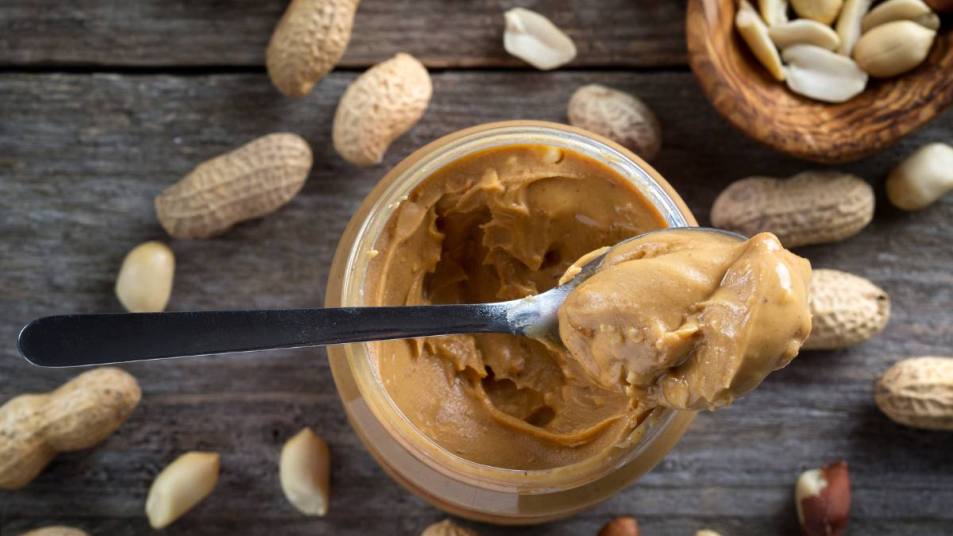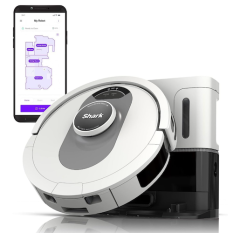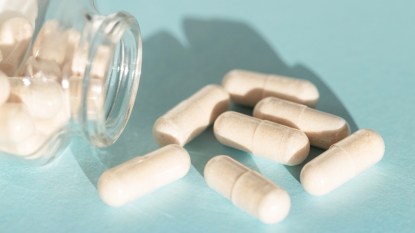What Happens If You Eat Peanut Butter Every Day? Nutritionists Weigh In
If you're in the habit of making a regular snack out of peanut butter, we have good news. Get your spoons ready!

If you’re like me and can’t help but enjoy it off a spoon, you may be wondering whether or not it’s okay to eat peanut butter every day. After all, while it’s a great way to help you meet your daily protein needs, this spread often gets characterized as unhealthy. So, is it good for you? Are there any concerning health risks? As peanut butter lovers, we turned to the experts to reveal all you need to know about the popular snack. Keep reading to learn what happens if you eat peanut butter every day and how to incorporate it into a balanced diet.
What will happen if you eat peanut butter every day?
Good news! You can eat peanut butter every day as long as you’re mindful of how you’re eating it and what’s on your favorite brand’s label. “It is a perfectly healthy food, and a healthy addition to any balanced diet — so long as it’s consumed in moderation,” says Amanda Holtzer MS, registered dietician and PB2 partner.
According to the USDA, one serving (two tablespoons) of peanut butter has on average seven grams of protein, three grams of saturated fat and three sugars. This of course might be a little higher or lower depending on the brand. Holtzer says it’s also a “calorically dense” food, meaning that it has a high amount of calories ( an average of 190) for a small serving size. Peanut butter has a variety of required vitamins and minerals including vitamin E, magnesium, potassium, zinc, and vitamin B3
You’ll help hit your daily protein intake
“You’re probably not going to be able to distinguish any changes from eating peanut butter, since there are so many other factors in the day that contribute to health and wellbeing,” says Avery Zenker, registered dietitian, MAN at EverFlex Fitness. However, it does help you get closer to meeting your daily protein goals.
Peanut butter is a great source of plant-based protein, as it, yes, comes from peanuts. “I often recommend adding peanut butter to foods like toast, waffles, and oatmeal for a healthy dose of protein,” adds Holtzer.
Related: What Happens If You Eat Eggs Every Day? Nutritionists Share the Benefits
You’ll be protecting your heart
When it comes to fat, one serving size of peanut butter usually has a total of 16 grams, three of which are saturated. “This means that the total fat in peanut butter is about 19% saturated and about 81% unsaturated fat — which is a great ratio,” explains Holtzer. “Ideally, we want our fat sources to come from unsaturated sources because unsaturated fats provide benefits such as decreasing LDL cholesterol and fighting inflammation in the body.” The American Heart Association recommends that the average woman should stick to no more than 13 grams of saturated fat per day.
By helping cholesterol levels, the unsaturated fats in peanut butter also work to lower the risk of heart disease. Double-check the ingredients and the labels when you’re shopping to make sure you’re not eating a brand with too much sugar or fat content.
You’ll have more energy

“The combination of protein, healthy fats, and rich flavor in peanut butter can help you feel satiated and full for longer,” says Zenker. Thanks to its high-calorie content, peanut butter is also good for an energy boost, and Zenker notes that it’s great for people who don’t consume enough calories throughout the day.
Holtzer concurs, explaining that fats are extremely slow-digesting and satiating macronutrients, which can help you stay awake and fuller throughout the day.
What are the downsides of eating peanut butter every day?
Even though the high-calorie content in peanut butter can be good at times, it can also be bad for you if you’re consuming too much. “If you enjoy peanut butter in multiple ways and find yourself eating it several times throughout the day, you may be consuming more calories than you’re aware of,” says Holtzer. The same is true if you’re only eating it once a day but eating more than the recommended serving size.
Oftentimes the sugar content in certain brands can also be a con of the nutty treat. Peanut butter is simply peanuts that are ground up and blended to provide that smooth and creamy texture we all love. “However, for the purposes of adding flavor and preserving the shelf life of the product, many brands add extra ingredients — some of which are not the greatest,” says Holtzer. These include extra sugar and oils that make eating it not as healthy.
How to incorporate peanut butter into your diet

Zenker notes that it’s important to eat a variety of foods every day. “Eating too much of one thing, including peanut butter, can lead to imbalanced nutrient intake.”
However, you can “eat peanut butter in ways you enjoy, such as on toast, in oatmeal, with fruit like bananas or apples, as peanut sauce, in desserts, and more,” she adds. To not overeat, it may be helpful to consciously measure out each serving of peanut butter you plan to eat per day. Happy spooning!
For more on healthy eating:
Kamut Flour Has 66% More Protein Than Regular Flour — Here’s How to Use It
Is Avocado Bread Worth the Hype? A Registered Dietitian Puts It to the Test
This content is not a substitute for professional medical advice or diagnosis. Always consult your physician before pursuing any treatment plan.













